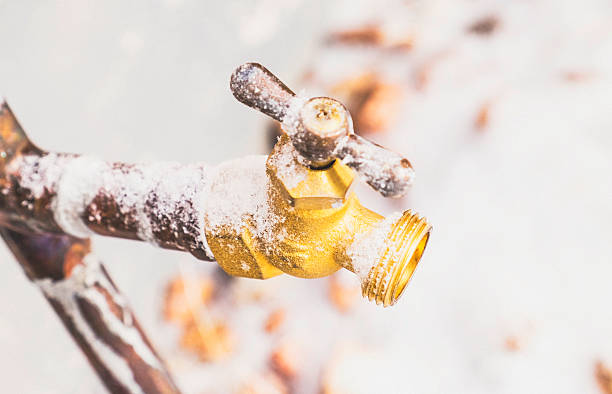Preparing your home’s plumbing system for the winter is crucial as the colder months approach. The drop in temperature can cause pipes to freeze and burst, leading to costly repairs and water damage. To prevent these issues and ensure a smooth transition into the colder season, here are some essential plumbing tips to prepare your pipes for winter:
Prevent Freezing Pipes: The Importance of Insulating Pipes in Unheated Areas
One of the most effective ways to prevent your pipes from freezing is to insulate them. Pay special attention to pipes in unheated areas such as basements, attics, and garages. You can use foam pipe insulation, which is inexpensive and easy to install. This added insulation layer will help keep the water in your pipes from freezing.
Essential Steps to Protect Your Pipes From Freezing
Check for any leaks or drafts around your home, especially near pipes. Cold air can enter through these gaps and increase the risk of freezing. Use caulking or weather stripping to seal any leaks around doors, windows, and areas where pipes enter or exit your home.
Drip to Prevent the Freeze: How a Slow Faucet Flow Can Protect Your Pipes
On particularly cold nights, allow a slow drip from faucets connected to exposed pipes. Even if minimal, the constant water flow can prevent pressure from building up inside the pipes, reducing the risk of them freezing and bursting.
Disconnecting and Draining Outdoor Faucets and Hoses
Disconnect and drain garden hoses before the first freeze. Also, shut off the water supply to outdoor faucets and drain them to prevent any remaining water from freezing and causing damage. Use an indoor valve to shut off the water supply to outdoor faucets.
The Importance of Maintaining Consistent Indoor Temperature to Prevent Pipe Freezing
Maintain a consistent temperature in your home, even if you’re away. Keeping the heat on ensures that the temperature inside the walls, where pipes are located, remains above freezing. A thermostat setting of at least 55°F is recommended.
How Opening Cabinet Doors Can Prevent Freezing
Open the cabinet doors for kitchen and bathroom sinks on exterior walls to allow warm air to circulate the pipes. This simple step can significantly prevent freezing.
Protecting Pipes by Securing Crawl Spaces
If you have crawl spaces in your home, ensure they are properly sealed to prevent cold air from entering and affecting the pipes.
Know Where Your Main Water Valve Is
If a pipe freezes and bursts, you must know where your main water shut-off valve is. This will allow you to quickly turn off the water supply to your home, minimizing water damage.
Winterize Your Plumbing: Proactive Measures For a Worry-Free Season
By taking these preventive measures, you can protect your plumbing system from the harsh winter weather and avoid the inconvenience and expense of frozen or burst pipes. Regularly inspect your pipes throughout the winter and promptly address any issues with the plumbing expert. Remember, a little preparation goes a long way in ensuring a worry-free winter for your home’s plumbing.



